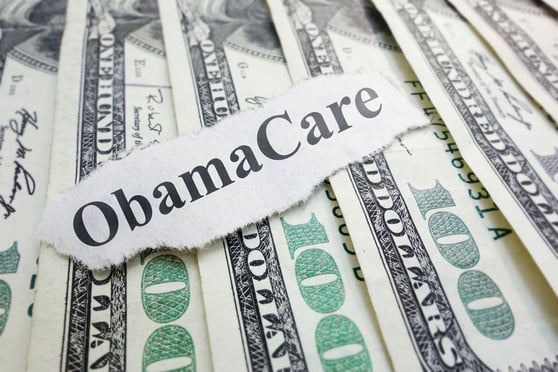The nation’s top cancer doctors are more likely to be excludedfrom low-cost health insurance plans offered on the nation’sindividual market, potentially crimping access to thehighest-quality care for Americans when they need it most, a newstudy found.
|Related: ACA helped catch cancer faster as insurancegrew
|The individual exchanges, opened in 2014 as part of theAffordable Care Act, often include lower-cost policies that limitthe number of physicians available to members as a way to cutcosts. Those “narrow networks” are becoming more prevalent inObamacare, as insurers seek ways to offer cheaper coverage,according to McKinsey & Co. The study was published in theJournal of Clinical Oncology and examined data from 2014.
|The study offers a sense of the tradeoffs Americans face whenbuying health-care coverage on their own: Plans with lower premiumsoften get costs down by limiting choices of doctors and hospitals,asking patients to pay more out of pocket, or some combination ofthe two. It’s an issue patients are increasingly facing ininsurance provided by employers, too, and one they’d likelycontinue to deal with under Republican plans to replace Obamacare.The current GOP proposals offer less financial help for people tobuy coverage and could shift more people into lower-cost plans.
|For the study, researchers from the University of Pennsylvaniaanalyzed data on 23,442 oncologists in the U.S., evaluating howoften doctors affiliated with National Cancer Institute-designatedcenters were covered by lower-cost insurance plans. The Universityof Pennsylvania is an NCI-designated cancer center.
|Oncologists working at the U.S.’s 69 NCI facilities in the U.S.,which offer access to scientific research and are known for theirhandling of complex cases, were twice as likely to be excludedfrom plans with the narrowest networks, according to the study.
|Related: Anaylsis shows how the ACA swamped the individualmarket
|“Most common cancers can be treated well anywhere,” said JustinBekelman, associate professor of radiation oncology, medical ethicsand health policy at the University of Pennsylvania, and one of theresearchers. “But there are many patients with rare or uncommontumors who need access to the most advanced clinical trials, andthat access is often only at these NCI cancer centers. On theindividual market, when people are spending their own hard-earneddollars, they can chose to have access or not. But right now theyare choosing in a blind way.”
|Network questions
The Obama administration had been working to make it easier forpeople to figure out whether individual doctors and drugs werecovered by their Obamacare plans by looking up such informationonline. It’s harder for consumers to determine thecomprehensiveness of an insurance plan’s network, however, and sofar there’s only been a limited effort to require plans to disclosethe overall size of their networks.
|Related: Cancer pateints worried about health carecoverage
|Regulating insurers’ networks is largely left up to the states.The Trump administration has said it will defer to states ratherthan conduct its own reviews, for the most part.
|“Certainly there are real issues with consumers trying tounderstand what kind of network they’re getting,” said JustinGiovanelli, an associate research professor at GeorgetownUniversity’s Center on Health Insurance Reforms who wasn’t involvedin the study. “What you want is to have more information so you canmake good choices about it.”
|Health plans have procedures that let patients who needspecialized care get to the appropriate doctors, according to astatement from the industry group America’s Health Insurance Plans.The group noted that the study dealt with coverage for individualphysicians, not for the facilities themselves.
|“Patient access to an oncologist affiliated with anNCI-designated or NCCN cancer center is separate from patientaccess to treatment at these centers,” Kristine Grow, an AHIPspokeswoman, said in the statement. “Community oncologists who arepart of the plan’s network can recommend patients to these centersbased on patient needs.”
|Higher costs
According to the researchers, doctors at NCI-designated cancercenters, such as Memorial Sloan-Kettering in New York, Dana-Farberin Boston, MD Anderson in Houston and the University ofPennsylvania, may be excluded from the narrow networks because oftheir cost. Because of the doctors’ status, the centers may be moreable to negotiate higher reimbursement rates for their services.They may also attract more complicated, and thus costly, patients.Excluding them could help insurers control expenses at the price oflimiting access to high-quality, specialized care, the researcherssaid.
|“In an ideal world, narrow networks could be a great tool forinsurers to steer patients toward these higher quality providers,to ensure that overall costs are actually lower,” said leadresearcher Laura Yasaitis, from the department of health economicsat the University of Pennsylvania. “It looks like in the data welooked at that prices may be the more prominent motivator forinsurers.”
|The Penn researchers analyzed 248 insurance networks across theU.S. operating in areas with NCI-designated centers. They foundthat one in every three significantly limited the number ofoncologists in their insurance plans. Of all the cancer doctors whowere part of those narrow networks, 17 percent worked at NCIcenters. Of all the doctors who were excluded from those plans, 35percent participated at NCI centers.
|The discrepancy wasn’t seen in broader insurance networks. Inthose plans, 34 percent of included oncologists were affiliatedwith NCI centers, compared with 29 percent of those cancer doctorswho were excluded, according to the study.
|Copyright 2018 Bloomberg. All rightsreserved. This material may not be published, broadcast, rewritten,or redistributed.
Complete your profile to continue reading and get FREE access to BenefitsPRO, part of your ALM digital membership.
Your access to unlimited BenefitsPRO content isn’t changing.
Once you are an ALM digital member, you’ll receive:
- Critical BenefitsPRO information including cutting edge post-reform success strategies, access to educational webcasts and videos, resources from industry leaders, and informative Newsletters.
- Exclusive discounts on ALM, BenefitsPRO magazine and BenefitsPRO.com events
- Access to other award-winning ALM websites including ThinkAdvisor.com and Law.com
Already have an account? Sign In
© 2024 ALM Global, LLC, All Rights Reserved. Request academic re-use from www.copyright.com. All other uses, submit a request to [email protected]. For more information visit Asset & Logo Licensing.








